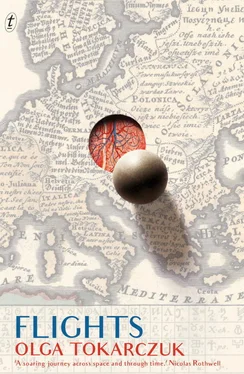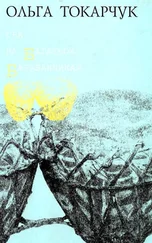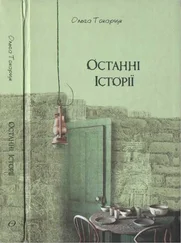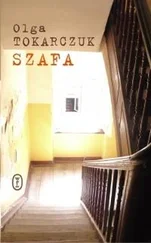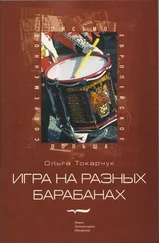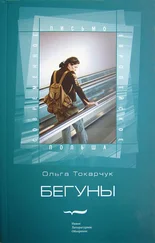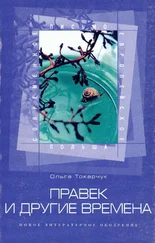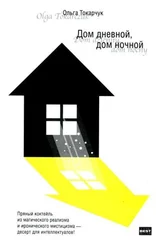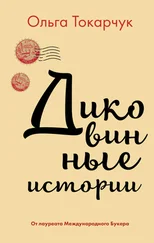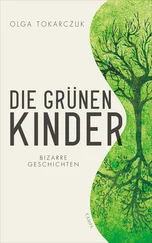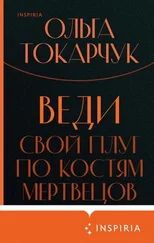Then she’ll spend time with the child; if the weather’s nice, the boy can be taken out onto the balcony, not that there is much to see from there – just apartment blocks like great grey coral reefs in a dried-up ocean, populated by industrious organisms, their ocean bed the hazy horizon of the gigantic metropolis, Moscow. But the boy always looks up at the sky, hovering over the underbellies of the clouds, following them for a while, until they drift out of view.
Annushka is grateful to her mother-in-law for this one day a week. As she heads out the door she gives her a quick kiss on her soft, velvety cheek. That’s all the time they spend together, always at the door, and then she’ll rush down the stairs, feeling lighter and lighter the further she descends. She has the whole day ahead of her. Not that she will spend it on herself, of course. She has many things to take care of. She’ll pay the bills, go grocery shopping, pick up Petya’s prescriptions, visit the cemetery, and then finally she’ll go all the way to the other end of this inhuman city so she can sit in the encroaching darkness and burst into tears. Everything takes forever because there are traffic jams everywhere, and crushed between people she watches through the windowpanes of the bus as the gigantic cars with tinted windows glide effortlessly ahead, invested with some diabolical power, while the rest of them are at a standstill. She looks out at the squares filled with young people, at the mobile bazaars selling cheap Chinese goods. She always transfers at Kievsky Station, where she passes by all sorts of people as they make their way up and out from the underground platforms. But there is no one who attracts her attention, no one who terrifies her like this bizarre figure standing by the exit, against a backdrop of makeshift fences concealing the dug-up foundations of some construction under way, fences pasted over so densely with advertisements that they seem to be screaming.
That woman’s orbit is the strip of untamed land between the wall and the just-lain pavement blocks; in this way she bears witness to the uninterrupted procession of people, receives that parade of tired and hurrying pedestrians whom she tends to catch still in the middle of their journeys from work to home or vice versa – now they’ll switch their modes of transport, change from metro to bus.
She’s dressed differently from all of them – she’s wearing a plethora of things: trousers, and over them several skirts, but arranged so that each sticks out from below the next, in layers; and the same on top – multiple shirts, sheepskins, vests. And over everything a grey quilted drill coat, the height of refined simplicity, an echo of a distant eastern monastery or a labour camp. Combined these layers makes some aesthetic sense, and Annushka even likes it; it strikes her that the colours have been carefully selected, though it isn’t clear if the selection is a human one or rather the haute couture of entropy – fading colours, fraying and falling apart.
But the strangest thing is the woman’s head – tightly wrapped in a scrap of material, pressed together by a warm hat with ear flaps – and her hidden face; all you can see is her mouth as it emits a ceaseless stream of curses. The sight of this is so upsetting that Annushka never tries to understand the meanings these curses might contain. And now, too, as she passes by her, Annushka speeds up, fearful that this woman might latch onto her. That in the rush of those furious words, Annushka might even hear her own name.
It’s pleasant December weather, the pavements are dry, cleared of snow, and her shoes are comfortable. Annushka doesn’t get on the bus, instead crossing the bridge and then promenading along the multi-lane highway, feeling like she’s walking down the shore of an immense river with no bridges. She enjoys this promenade, won’t cry until she gets to her church, in the dark corner where she always kneels and remains in that uncomfortable position until she’s lost sensation in her legs, until she’s attained the stage that comes after the stiffening and shooting pains – the stage of nothingness. But now she throws her purse over her shoulder and holds on tightly to the plastic bag that holds the plastic flowers for the cemetery. She tries not to think about anything, and least of all about the place she’s come from. She’s approaching the most elegant neighbourhood of the city, so there are things for her to look at – it’s full of shops here, where smooth, slender mannequins indifferently exhibit the most expensive clothing. Annushka pauses to look at a purse sewn from a million beads, embellished with tulle and lace: a kind of miracle. Finally she reaches the specialized pharmacy, where she will have to wait. But she’ll receive the necessary medications. Futile medications, which only barely relieve her son’s symptoms.
At a covered stand she buys a bag of pirozhki and eats them sitting on a bench in the square.
In her little church she finds a lot of tourists. The young priest who normally bustles around the sanctuary like a merchant amidst his wares is busy now, telling the tourists about the history of the building and about iconostasis. In a singsong voice he recites his teachings, the head on his slim, tall body looming over the little crowd, his pretty light beard like an extraordinary halo that’s slipped off his head and slid down to his breast. Annushka backs out: how could she possibly pray and cry in the company of all these tourists? She waits and waits, but then the next group comes in, and so Annushka decides to find another site for her tears – a little further on there is another church, small and old, more often than not closed. She once went in but didn’t like it – she’d been repulsed by the chill and the scent of damp wood.
But now she isn’t picky, she has to find a place where she can finally cry, a secluded place, but not empty; it has to have the palpable presence of something larger than her, of big outstretched arms trembling with life. Annushka also needs to feel someone’s gaze on her, to feel that her crying is witnessed by someone, to feel it isn’t just addressing a void. It can be eyes painted on wood, always open, eyes that never tire of anything, eternally calm: let those eyes watch her, unblinking.
She takes three candles and drops a few coins in the tin. The first is for Petya, the second for her reticent husband, the third for her mother-in-law in her non-iron housecoat. She lights them from the other few that burn here and looks around and finds a spot for herself on the right side, in a dark corner, so as not to bother the old women who are praying. She crosses herself sweepingly, commencing in this way the ritual of her tears.
But when she raises her eyes to pray, another face emerges from the gloom – the vast face of the gloomy icon. It’s a piece of square board hung high, almost right under the dome of the church, and on it the simple features of Christ, painted in shades of brown and grey. The face is dark, against a dark background, with no halo, no crown; only the eyes glow as they stare straight into her, just like she’d wanted. And yet, it wasn’t this type of gaze Annushka had been thinking of – she’d expected gentle eyes filled with love. This gaze, hypnotic, paralyzes her. Under it, Annushka’s body shrinks. He was here just for a moment, floats down from the ceiling from afar, from deepest darkness – that’s God’s place, his hiding spot. He has no need of a body, just the face she must confront now. It’s a penetrating gaze, driving painfully into her head, as though with a screwdriver. Drilling a hole into her brain. It might as well be the face not of the saviour, but rather of a drowned man who didn’t die, shielding himself against omnipresent death under the water instead, who now, due to mysterious currents, has floated up under the surface, conscious, highly aware, saying: look, here I am. But she doesn’t want to look at him. Annushka lowers her eyes, she doesn’t want to know – that God is weak and has lost, that he’s been exiled and that he is creeping around the rubbish heaps of the world, in its fetid depths. There’s no sense in crying. This is not the place for tears. This God won’t help, or support, or encourage, or purify, or save. The gaze of the drowned man bores into her forehead, she hears a murmur, an underground thunder off in the distance, a vibration below the church’s floor.
Читать дальше
